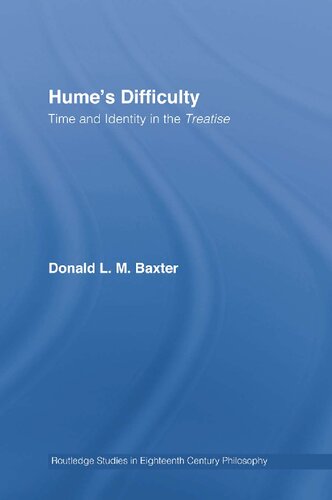

Most ebook files are in PDF format, so you can easily read them using various software such as Foxit Reader or directly on the Google Chrome browser.
Some ebook files are released by publishers in other formats such as .awz, .mobi, .epub, .fb2, etc. You may need to install specific software to read these formats on mobile/PC, such as Calibre.
Please read the tutorial at this link. https://ebooknice.com/page/post?id=faq
We offer FREE conversion to the popular formats you request; however, this may take some time. Therefore, right after payment, please email us, and we will try to provide the service as quickly as possible.
For some exceptional file formats or broken links (if any), please refrain from opening any disputes. Instead, email us first, and we will try to assist within a maximum of 6 hours.
EbookNice Team

Status:
Available0.0
0 reviewsIn this volume--the first, focused study of Hume on time and identity--Baxter focuses on Hume’s treatment of the concept of numerical identity, which is central to Hume's famous discussions of the external world and personal identity. Hume raises a long unappreciated, and still unresolved, difficulty with the concept of identity: how to represent something as "a medium betwixt unity and number." Superficial resemblance to Frege’s famous puzzle has kept the difficulty in the shadows. Hume’s way of addressing it makes sense only in the context of his unorthodox theory of time. Baxter shows the defensibility of that theory against past dismissive interpretations, especially of Hume’s stance on infinite divisibility. Later the author shows how the difficulty underlies Hume’s later worries about his theory of personal identity, in a new reading motivated by Hume’s important appeals to consciousness. Baxter casts Hume throughout as an acute metaphysician, and reconciles this side of Hume with his overarching Pyrrhonian skepticism.